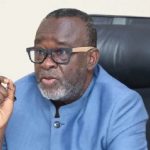
Inclusiveness and citizen participation are vital pillars of democratic governance and sustainable development. In Ghana, these principles are enshrined in the 1992 Constitution and closely linked to Sustainable Development Goal (SDG) 16, which aims to promote inclusive societies, access to justice, and strong institutions. Despite these commitments, findings from the Governance Series Wave 1 Report (2025) by the Ghana Statistical Service (GSS) expose significant gaps between these ideals and the realities experienced by many Ghanaians.
The report shows that over 70% of respondents believe Ghana’s political system provides little or no space for citizens to influence decisions. Only 12% felt they had a meaningful say in public governance. This widespread sense of exclusion points to systemic deficiencies in participatory mechanisms and highlights a growing disconnect between institutions and the public. Groups such as women, persons with disabilities, and rural residents face even greater barriers, underscoring the urgency for inclusive reforms.
Why Inclusive Participation Matters
Inclusive governance gives all citizens—regardless of gender, ability, location, or economic status—a role in shaping policies that affect their lives. It strengthens the legitimacy of public institutions, improves development outcomes, and builds trust between citizens and the state. When people feel involved and respected, they are more likely to comply with laws, support reforms, and contribute to national development. Inclusive governance also enhances transparency and accountability by exposing inefficiencies and limiting corruption.
Citizen engagement in planning, budgeting, and monitoring public services like health, education, and sanitation ensures that projects reflect real community needs and are implemented effectively.
Key Findings from the Governance Series Report
The Governance Series Wave 1 Report, based on a survey of over 7,000 respondents across Ghana using Computer-Assisted Telephone Interviewing (CATI), sheds light on troubling governance trends. The study covered the period from January to December 2024 and explored indicators aligned with SDG 16, including bribery (16.5.1) and inclusive decision-making (16.7.2).
An overwhelming 72.4% of respondents felt that governance systems were unresponsive. Youth aged 18–24 (54.9%) and the elderly (48.6%) were especially dissatisfied. Among persons with disabilities, those with self-care (66.0%) and speech difficulties (54.8%) reported the highest levels of exclusion.
Regionally, Volta (58.4%), Upper East (57.0%), and North East (61.7%) recorded the highest perceptions of unresponsiveness, suggesting uneven implementation of decentralization policies and a need for tailored subnational reforms.
Exclusion by Gender, Geography, and Disability
The report reveals persistent inequalities in participation. Women were slightly more likely than men to feel excluded (43.5% vs. 41.8%), while rural dwellers (45.8%) felt more shut out than urban residents (40.5%). Persons with physical and sensory disabilities were particularly affected by barriers in both infrastructure and institutional responsiveness. These disparities call for deliberate policies to ensure equitable access and representation.
Beyond Elections: Sustaining Civic Engagement
Although 98% of respondents knew their right to vote in national elections, participation beyond the polls remains limited. Regions like Oti (81.5%) and Upper West (82.3%) reported lower turnout in local elections, pointing to declining engagement at the grassroots level.
True democracy requires continuous involvement—not just voting every four years. Citizens must be involved in policy design, implementation, and evaluation. This can be achieved through participatory budgeting, town hall meetings, and district development planning forums. Local governments, especially MMDAs, must be empowered and resourced to facilitate these processes. Civic education must also be deepened beyond electoral issues to foster active citizenship year-round.
Leveraging Data for Inclusive Reform
The Governance Series provides critical disaggregated data that can drive policy. It enables stakeholders to identify vulnerable groups and regional disparities, allowing for more inclusive planning. For example, the report’s finding that 21.1% of people with activity limitations reported paying bribes signals a need for targeted anti-corruption interventions.
Policymakers must use such data to allocate resources equitably and develop governance strategies that ensure no group is left behind.
Moving Forward: Strategies for Inclusive Governance
To build an inclusive state, Ghana should prioritize:
- Legalized citizen engagement at all levels through participatory planning and monitoring.
- Accessible digital platforms for public input, especially for youth and persons with disabilities.
- Expanded civic education through a strengthened NCCE.
- Disaggregated data use in planning and policymaking.
- Structured feedback loops, such as citizen juries and community scorecards.
- Civil society and traditional authority collaboration to reach underserved populations.
Conclusion
Ghana’s democratic advancement depends on how well it includes and empowers all citizens. The Governance Series Wave 1 Report offers a timely wake-up call—and a roadmap for reform. Achieving SDG 16 and the constitutional vision of democracy requires deliberate action from all stakeholders. Every citizen must be given a voice, and every voice must count.
Source: Victor Boateng Owusu
Senior Statistician | Statistical Data Advocate | Project Management Expert

 Bowen: Authoritarian regimes die gradually then suddenly, but Iran is not there yet
Bowen: Authoritarian regimes die gradually then suddenly, but Iran is not there yet  Judicial Service staff declare indefinite strike over eight-month allowance arrears
Judicial Service staff declare indefinite strike over eight-month allowance arrears  US Supreme Court appears likely to uphold restrictions on transgender athletes
US Supreme Court appears likely to uphold restrictions on transgender athletes 


